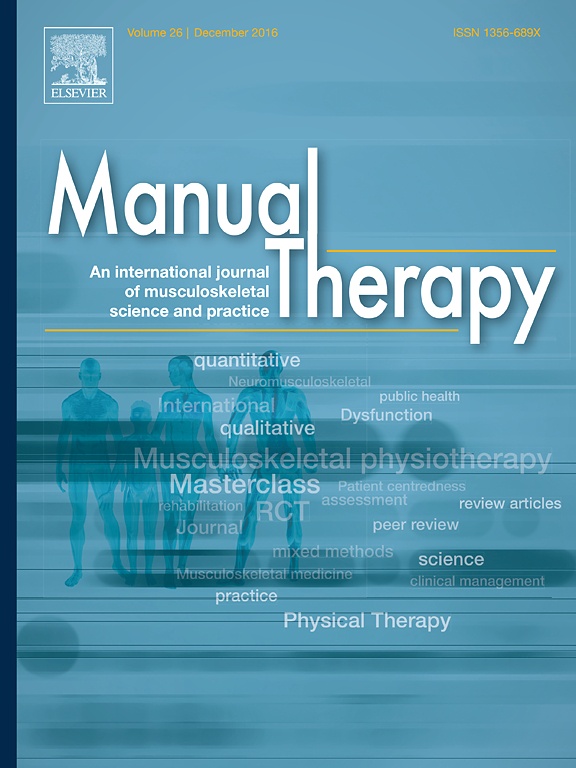
Comparison of two thoracic spinal manipulation techniques for chronic mechanical neck pain

Comparison of two thoracic spinal manipulation techniques for chronic mechanical neck pain
Comparative short-term effects of two thoracic spinal manipulation techniques in subjects with chronic mechanical neck pain: a randomized controlled trial
Man Ther. 2014 Aug;19(4):331-7. doi: 10.1016/j.math.2014.03.002. Epub 2014 Mar 14.Did you know you're eligible to earn 0.5 CME credits for reading this report? Click Here
Synopsis
64 patients with medical diagnosis of chronic non-specific neck pain (NSNP) were randomized to one of two thoracic spinal manual therapy techniques: dog-technique and toggle recoil technique. Results indicated that although neck mobility, pain, and mechanosensitivity improved within both groups immediately following intervention and 20 minutes after intervention, only the toggle recoil group achie...
To view the full content, login to your account,
or start your 30-day FREE Trial today.
FREE TRIAL
LOGIN
Forgot Password?
Explore some of our unlocked ACE Reports below!

Learn about our AI Driven
High Impact Search Feature
Our AI driven High Impact metric calculates the impact an article will have by considering both the publishing journal and the content of the article itself. Built using the latest advances in natural language processing, OE High Impact predicts an article’s future number of citations better than impact factor alone.
Continue



 LOGIN
LOGIN

Join the Conversation
Please Login or Join to leave comments.